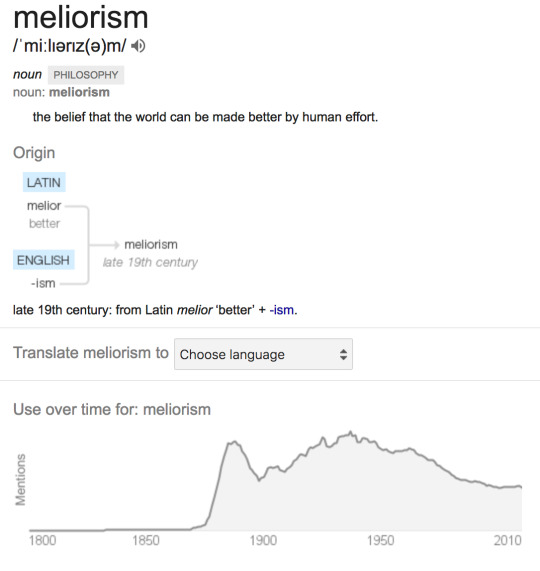Photo

Life as we know it is only possible for 0.0000000000000000000000000000000000000000000000000000000000000000000000000000000000001% of the lifespan of the Universe (as measured from the Big Bang until the evaporation of the last black hole).
Cox, B., Cohen, A. (2011) Wonders of the Universe: Chapter 4, excerpt via “Timelapse of the Future: A Journey to the End of Time” <https://www.youtube.com/watch?v=uD4izuDMUQA>
0 notes
Text
This is not at all to say that the alternative to consequentialism is that one has to accept that there are some actions which one should always do, or again, some which one should never do, whatever the consequences: this is a much stronger position than any involved, as I have defined the issues, in the denial of consequentialism. All that is involved on the present account in the denial of consequentialism is that with respect to some type of action there are some situations in which that would be the right thing to do even though the state of affairs produced by one's doing that would be worse than some other state of affairs accessible to one.
One might think that there just were some types of action which [ should or should not be done whatever the consequences]; though it seems to me obscure how one could have much faith in a list of such actions unless one suppose that it had supernatural warrant.
the idea that there was nothing which was right whatever the consequences, and the different idea that everything depends on consequences [...] it is very important that the two ideas are different.
Williams, B. (1973) Utilitarianism: For & Against
0 notes
Text
Life presents us with a question: which story are you going to practice telling? A story of lack, or a story of blessings? Kind of everything depends on that.
-- Chris Cullen
0 notes
Text
[...] to properly understand the reasons bearing on our actions, we must view them as parts of patterns or strategies, not only singly.
[...] individual actions are so insignificant that it’s hard to connect them to the outcome in any way that could matter morally.
[...] The key is to break with the tradition of focusing ethical analysis on individual acts alone. Turning our moral attention to the patterns of behaviour we enact over time shows that we do, after all, make a difference and that we should recognise the moral duties which flow from that fact.
Peace, F. (2017) “Global Warming & Vegetarianism: What should I do, when what I do makes no difference?” <http://blog.practicalethics.ox.ac.uk/2017/05/oxford-uehiro-prize-in-practical-ethics-global-warming-vegetarianism-what-should-i-do-when-what-i-do-makes-no-difference-by-fergus-peace/>
0 notes
Video
vimeo
N. Julien (2016) Le Baiser
via Fubiz <http://www.fubiz.net/2016/10/23/video-projection-of-couples-kissing-in-paris-by-julien-nonnon/>
0 notes
Text
In the past, censorship worked by blocking the flow of information. In the twenty-first century, censorship works by flooding people with irrelevant information. People just don’t know what to pay attention to, and they often spend their time investigating and debating side issues. In ancient times having power meant having access to data. Today having power means knowing what to ignore.
Harari, Y. N. (2016) Homo Deus: A Brief History of Tomorrow, loc. 5908-5911
0 notes
Text
Since there is no script, and since humans fulfil no role in any great drama, terrible things might befall us and no power will come to save us, or give meaning to our suffering. There won’t be a happy ending, or a bad ending, or any ending at all. Things just happen, one after the other. The modern world does not believe in purpose, only in cause. If modernity has a motto, it is ‘shit happens’.
Harari, Y. N. (2016) Homo Deus: A Brief History of Tomorrow, loc. 3009-3011
0 notes
Text
You want to distinguish between what’s the best character to have and what the best action is in a particular situation. The best character might plausibly lead you to do the wrong thing in some situations.
MacAskill, W. (2016) Interview by Sam Harris <https://www.samharris.org/podcast/item/being-good-and-doing-good>
0 notes
Text
Toutes choses sont dites déjà; mais comme personne n’écoute, il faut toujours recommencer.
Gide, André (1891) ‘Le Traité du narcisse’ <https://fr.wikisource.org/wiki/Le_Trait%C3%A9_du_narcisse>
0 notes
Text
If you introspect about your own “bad” choices, you’ll find that even a “bad” choice to eat junk food or watch TV or do something you’re conflicted about comes from a “good” reason, like wanting to stop feeling anxious, or to do something about your loneliness, or to get your mind off something you don’t know how to face. The truth that emerges is this: that people of all levels of self-reflection and articulacy do things for good reasons, and that psychological theories that paint people as addicted, habituated, socially programmed, or driven directly by brain chemicals are a dangerous, elitist, and disrespectful kind of bullshit. Why are these theories dangerous? Because it’s only if people have reasons that you can possibly help them with what they want to do. If you imagine that there’s nothing behind people’s actions, that they don’t have anything noble that they hope for, that there’s nothing their actions are about… the best you can do is project your own goals for them (happiness, health, mindfulness, productivity, etc) and you needn’t have any concern about whether they want those things for themselves.
https://medium.com/@edelwax/is-anything-worth-maximizing-d11e648eb56f#.wcoriphwv
0 notes
Text
It is proposed that there are a set of cognitive mechanisms—a social cognitive interface (SCI)—designed for strategic manipulation of others’ representations of one’s traits, abilities, and prospects. Although constrained by plausibility, these mechanisms are not necessarily designed to maximize accuracy or to maintain consistency with other encapsulated representational systems.
[...]
We hypothesize that this is a primary function of the SCI: to maintain a store of representations of negotiable facts that can be used for persuasive purposes in one’s social world. For this reason, a crucial feature of the SCI is that it is not designed to maximize the accuracy of its representations, an idea consistent with the wealth of data on biases in cognitive processes (Greenwald, 1980; Riess, Rosenfeld, Melburg, & Tedeschi, 1981; Sedikides & Green, 2004). Instead, it is designed to maximize its effect in persuading others. As D. Krebs and Denton (1997) observed, “It is in our interest to induce others to overestimate our value” (p. 36). Humphrey and Dennett (1998) similarly concluded that “selves . . . exist primarily to handle social interactions” (p. 47).
There are, of course, limits to what others will believe. Because humans rely on socially communicated information, they have filtering systems to prevent being misled. Inaccuracy must be restrained. Thus, as a number of authors have pointed out, “Self-presentation is . . . the result of a tradeoff between favorability and plausibility” (Baumeister, 1999a, p. 8; see also D. Krebs & Denton, 1997; Schlenker, 1975; Schlenker & Leary, 1982a; Sperber, 2000a; Tice, Butler, Muraven, & Stillwell, 1995; Van Lange & Sedikides, 1998).
Kurzban, R. & Aktipis, C (2007) ‘Modularity and the Social Mind: Are Psychologists Too Self-Ish?’, PSPR, Vol. XX No. X, Month 2007 1-19 <http://www.sas.upenn.edu/psych/PLEEP/pdfs/in%20press%20Kurzban%20Aktipis%20PSPR%20proofs.pdf>
0 notes
Text
If hotel rooms exist to anticipate desire, to meet and fulfil all our needs, why do we so often feel despair in them?
Smith, Z. (2016) ‘Windows on the Will’, The New York Review of Books, March 10 2016 Issue
0 notes

